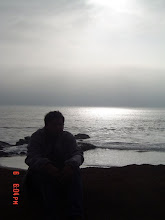What leads to discovery? Are discoveries those moments of serendipity that sadly and vulgarly relegate those moments of frustration and helplessness to the background. With no intention of disrespect to the greats who have/had made their mark in their respective fields courtesy their discoveries, I write this article on a subject, that has proved to be one of the greatest unanswered questions of all times for me.
Does Science provide the fundamental basis for all the happenings in the universe. Science, that proves to be an invaluable tool for the scientists, researchers, engineers, etc. does seem to provide an answer to most questions. But then, does it truly answer all the questions? We might rationale most fundamental happenings with the help of science. What baffles me often is this: What happened to the rationale when these fundamental happenings were discovered? In other words, do the discoveries happen by those moments of truth and serendipity followed by a detailed analysis using the tools of math and science to explain those very moments or vice versa.
This looks like an extension of Godel's Incompleteness theorem (Well, I might be wrong here. I would appreciate feedback on this). Science can explain almost anything under the sun, but definitely not everything. There are certain things that are just beyond any possible explanations or rationale. For e.g. the very concepts of Miracles and Hope. From the previous post on Anahata, I was clearly of the opinion that music was discovered more on the basis of instinct, intuition, determination, and ceaseless efforts in bringing out the unstruck sounds. When these are explained with the very faculties of scientific reasoning, the reasoning sounds fallacious (it might be perfectly logical for that matter).
This is not to mean that I hate Science. I love science. I am fortunately/unfortunately in a field that is close to science. Technology would never have been a possibility without science. This however doesn't stop me from asking these questions for which I have no answers.
Lastly, I would end this article with these quotes
Science is the belief in the ignorance of experts. (Richard Feynman)
The greatest obstacle to discovery is not ignorance; it is the illusion of knowledge.(Daniel J Boorstin)
PS: The author was recently recommended by a good friend of his avaldes - "Structure of Scientific Revolutions" by Thomas Kuhn. It should provide certain answers.


No comments:
Post a Comment